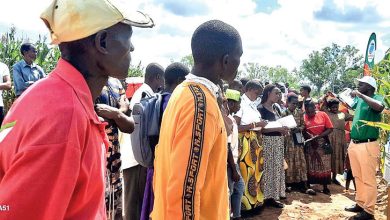Revisiting the primary school syllabus
Malawi’s primary school syllabus, touted as a comprehensive framework for learning, falls woefully short in catering to the needs of children with disabilities. The densely packed curriculum, replete with abstract concepts and rigid assessment standards, creates a hostile learning environment for students who require tailored support. For learners with visual impairments, the emphasis on written texts and visual aids can be a significant barrier, while those with hearing impairments struggle to keep pace with lessons reliant on auditory instruction.
The lack of flexibility in Malawi’s primary syllabus is particularly problematic for children with disabilities, who often require customised learning approaches to thrive. The curriculum’s emphasis on standardised testing and rote memorisation can be overwhelming for students with cognitive or intellectual disabilities, leading to frustration and disengagement.

their right to education
Furthermore, the syllabus’s narrow focus on academic achievement overlooks the importance of life skills and functional literacy for students with severe disabilities. By neglecting to provide accommodations and modifications, the syllabus effectively excludes children with disabilities from accessing a meaningful education, perpetuating a cycle of marginalisation and exclusion.
Special needs teacher, Christopher Sambo from Naotcha Primary School in Blantyre rural admits that the formal syllabus excludes the needs of learners with learning difficulties.
He believes the learning materials should be specific to every child’s needs to achieve inclusivity.
The lack of flexibility in Malawi’s primary syllabus is particularly problematic for children with disabilities, who often require customized learning approaches to thrive. The curriculum’s emphasis on standardised testing and rote memorisation can be overwhelming for students with cognitive or intellectual disabilities, leading to frustration and disengagement.
Furthermore, the syllabus’s narrow focus on academic achievement overlooks the importance of life skills and functional literacy for students with severe disabilities. By neglecting to provide accommodations and modifications, the syllabus effectively excludes children with disabilities from accessing a meaningful education, perpetuating a cycle of marginalisation and exclusion.
“We teach pupils who have low developmental conditions as such they cannot comprehend the information like a normal student, this affects quality education delivery.” he said.
He further recommended the policy makers to deliberately introduce learning materials for special children to thrive.
“Not all special children are the same; we need to know which materials fit for a certain group to easily help them with quality education just the same as any child, even during examinations these special children need more time to sit for the test.”
A standard 7 learner at Naotcha Primary School Hellen Mashalubu, 14, was born with cerebral palsy and faces such challenges.
Her teacher says it is difficult to use the same learning materials just like her classmates because her mind is like that of a person half her age.
“A child with learning difficulties can face a myriad of challenges in school, from struggling to keep pace with their peers to feeling stigmatised and isolated. They may experience frustration and anxiety when confronted with complex lesson materials, leading to decreased motivation and self-esteem. Additionally, they may encounter difficulties with social interactions, such as initiating or maintaining conversations, understanding social cues, and developing friendships. The child may also face challenges with organizational skills, time management, and completing homework assignments, further exacerbating feelings of inadequacy and low self-confidence,” he said.
According to Malawi Council for Disability Affairs (macoda) spokesperson Harriet Kachimanga, lack of inclusive syllabus leaves children with disabilities with no option but to drop out from school.
“Lack of tailored learning materials hinders these children from their right to education which eventually perpetuates dependency and abuse,” she said.
Kachimanga said if given opportunities, children with disabilities can thrive in their academics and become productive members of the society through education.
To create a truly inclusive education system, Malawi’s primary syllabus must undergo a radical transformation. This requires a shift from a one-size-fits-all approach to a flexible, child-centered framework that acknowledges and values diversity.
By incorporating universal design principles, providing accommodations and modifications, and training teachers in inclusive pedagogy, Malawi can ensure that all children, regardless of their abilities, have access to a quality education. Only then can the country unlock the full potential of its children, empowering them to become active citizens and contributors to Malawi’s development just like any other child.
The syllabus’s failure to incorporate inclusive design principles and adaptive assessments means that many children with disabilities are relegated to the fringes of the education system, their potential stifled by a rigid and unforgiving framework.
Kachimanga: Lack of tailored learning materials hinders children with disabilities their right to education





